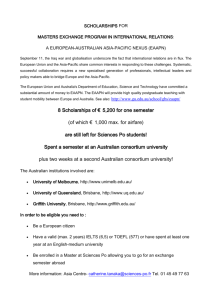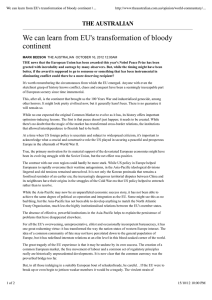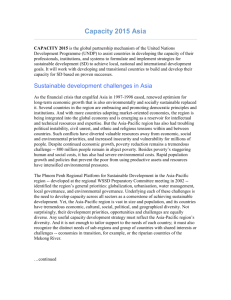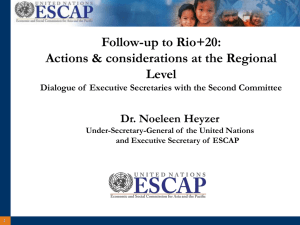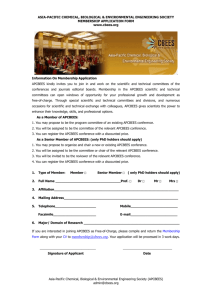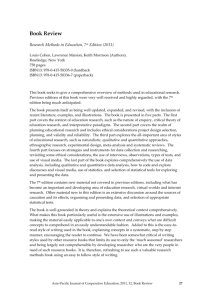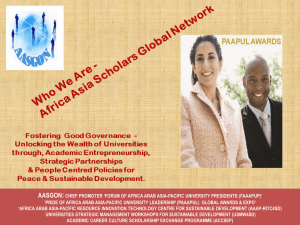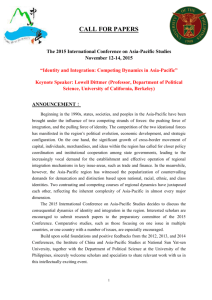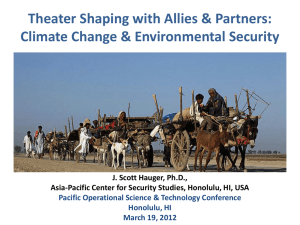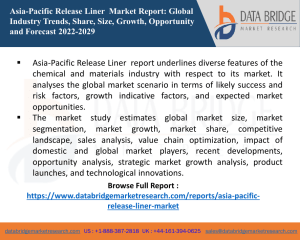Full abstract text - National Centre for Research on Europe
advertisement
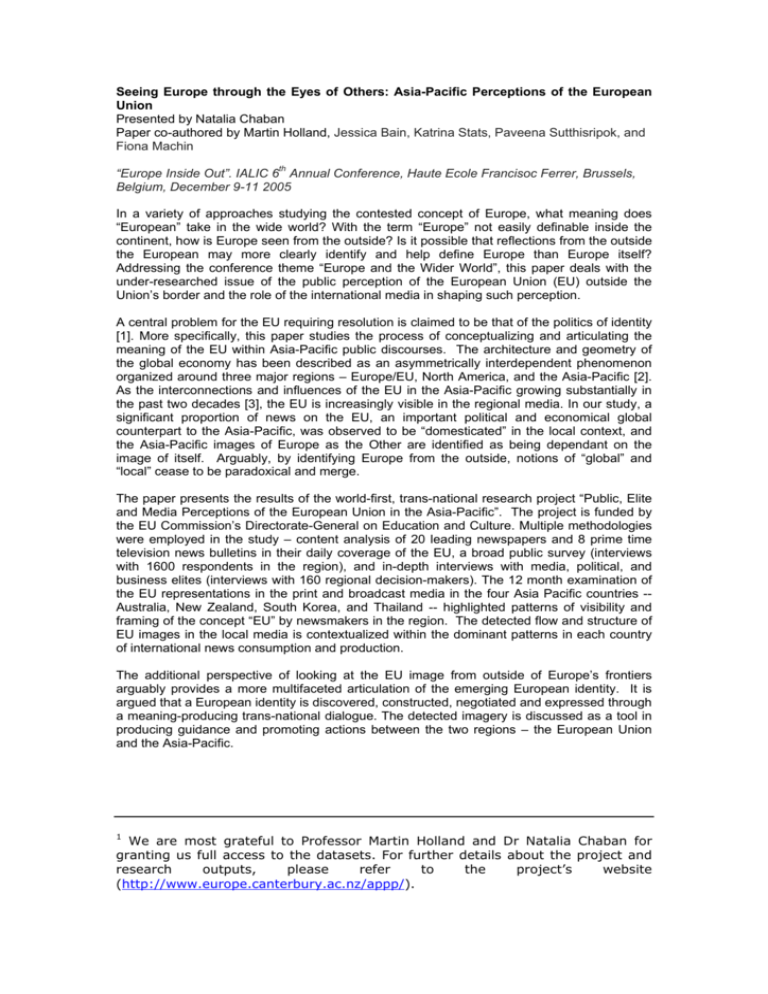
Seeing Europe through the Eyes of Others: Asia-Pacific Perceptions of the European Union Presented by Natalia Chaban Paper co-authored by Martin Holland, Jessica Bain, Katrina Stats, Paveena Sutthisripok, and Fiona Machin “Europe Inside Out”. IALIC 6th Annual Conference, Haute Ecole Francisoc Ferrer, Brussels, Belgium, December 9-11 2005 In a variety of approaches studying the contested concept of Europe, what meaning does “European” take in the wide world? With the term “Europe” not easily definable inside the continent, how is Europe seen from the outside? Is it possible that reflections from the outside the European may more clearly identify and help define Europe than Europe itself? Addressing the conference theme “Europe and the Wider World”, this paper deals with the under-researched issue of the public perception of the European Union (EU) outside the Union’s border and the role of the international media in shaping such perception. A central problem for the EU requiring resolution is claimed to be that of the politics of identity [1]. More specifically, this paper studies the process of conceptualizing and articulating the meaning of the EU within Asia-Pacific public discourses. The architecture and geometry of the global economy has been described as an asymmetrically interdependent phenomenon organized around three major regions – Europe/EU, North America, and the Asia-Pacific [2]. As the interconnections and influences of the EU in the Asia-Pacific growing substantially in the past two decades [3], the EU is increasingly visible in the regional media. In our study, a significant proportion of news on the EU, an important political and economical global counterpart to the Asia-Pacific, was observed to be “domesticated” in the local context, and the Asia-Pacific images of Europe as the Other are identified as being dependant on the image of itself. Arguably, by identifying Europe from the outside, notions of “global” and “local” cease to be paradoxical and merge. The paper presents the results of the world-first, trans-national research project “Public, Elite and Media Perceptions of the European Union in the Asia-Pacific”. The project is funded by the EU Commission’s Directorate-General on Education and Culture. Multiple methodologies were employed in the study – content analysis of 20 leading newspapers and 8 prime time television news bulletins in their daily coverage of the EU, a broad public survey (interviews with 1600 respondents in the region), and in-depth interviews with media, political, and business elites (interviews with 160 regional decision-makers). The 12 month examination of the EU representations in the print and broadcast media in the four Asia Pacific countries -Australia, New Zealand, South Korea, and Thailand -- highlighted patterns of visibility and framing of the concept “EU” by newsmakers in the region. The detected flow and structure of EU images in the local media is contextualized within the dominant patterns in each country of international news consumption and production. The additional perspective of looking at the EU image from outside of Europe’s frontiers arguably provides a more multifaceted articulation of the emerging European identity. It is argued that a European identity is discovered, constructed, negotiated and expressed through a meaning-producing trans-national dialogue. The detected imagery is discussed as a tool in producing guidance and promoting actions between the two regions – the European Union and the Asia-Pacific. 1 We are most grateful to Professor Martin Holland and Dr Natalia Chaban for granting us full access to the datasets. For further details about the project and research outputs, please refer to the project’s website (http://www.europe.canterbury.ac.nz/appp/). [1] Manners, Ian and Richard G. Whitman, ‘Towards Identifying the International Identity of the European Union: a Framework for Analysis of the EU’s Network of Relations’, Journal of European Integration 21(2): 231-49, p.235. [2] Castells, Manuel (1996) The Information Age – Economy, Society and Culture: The Rise of the Network Society. Vol.1. Oxford: Blackwell, p.145. [3] Held, David (2001) “Globalization, Cosmopolitanism and Democracy: an Interview”, March 11, (www.polity.co.uk/global/held.htm <http://www.polity.co.uk/global/held.htm> ), Accessed March 2003.
